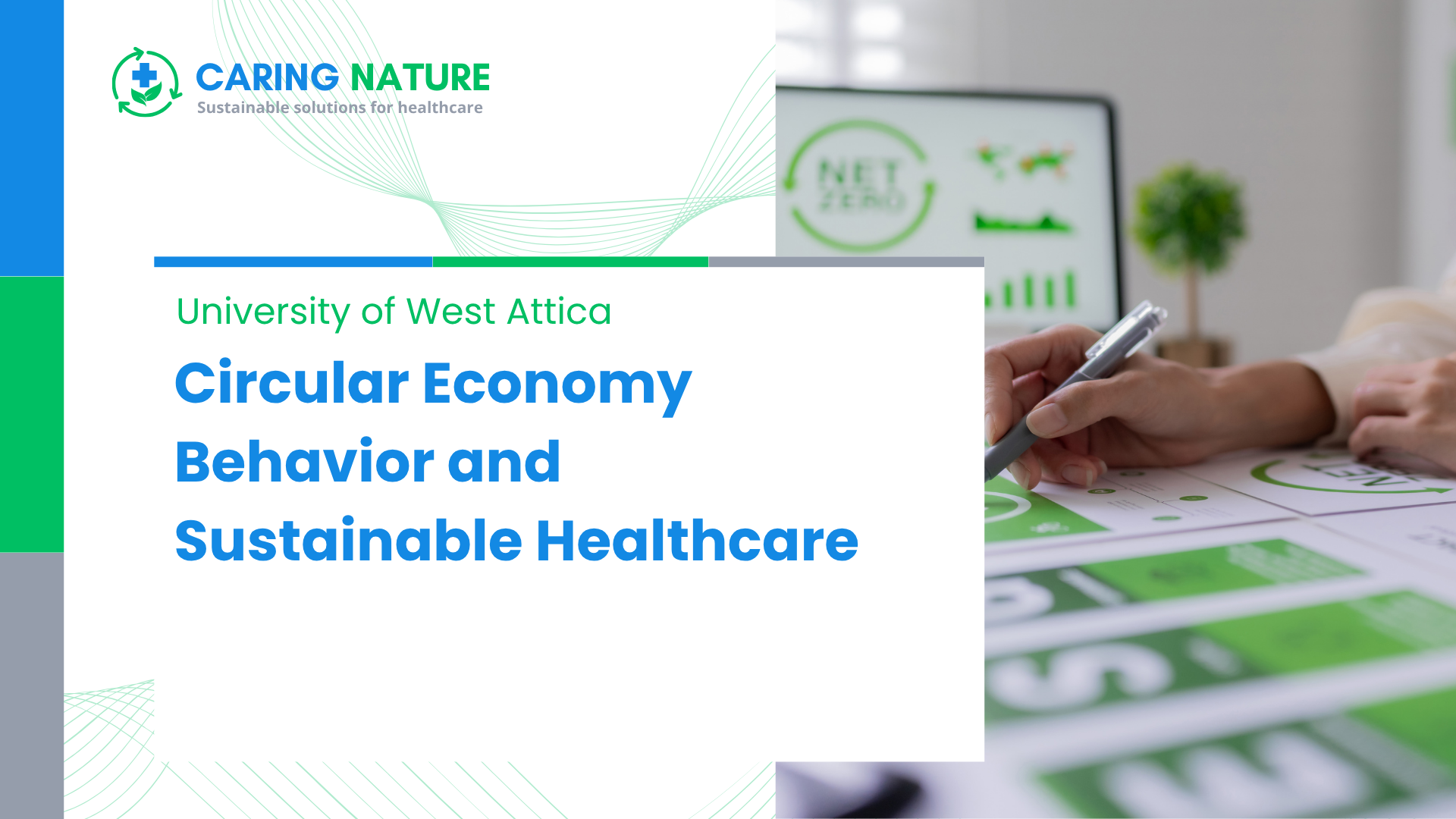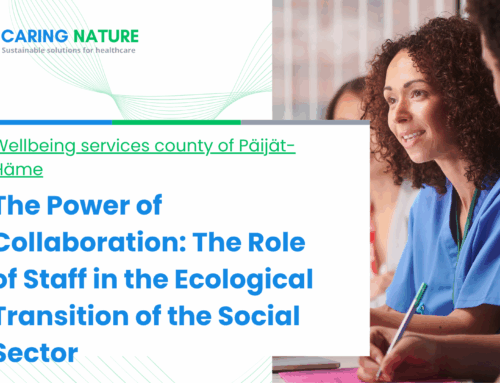As healthcare systems worldwide face pressures, from resource scarcity to the growing impacts of climate change, new approaches are needed to make them both resilient and sustainable. CARING NATURE partners Anastasios Sepetis and Ioannis Parlavantzas, from the University of West Attica, Greece, just released a study that explores how combining circular economy (CE) principles with organizational behavior (OB) can transform healthcare into a more environmentally responsible and resource-efficient sector.
The research examines how practices such as waste reduction, material reuse, and recycling can be effectively integrated within healthcare institutions, provided they are supported by strong leadership, employee engagement, and an organizational culture that values sustainability. This dual focus on operational and behavioral change is essential to build healthcare systems that are both ecologically and socially sustainable.
Drawing on a survey of 379 healthcare professionals from public and private institutions across Greece, the study reveals several key findings. It identifies a notable gap between management and staff attitudes toward environmental sustainability. Administrations often appear detached from climate and ecological concerns, while staff report limited motivation or awareness regarding sustainable practices. Moreover, the overall perception of workplace “climate”—both environmental and organizational—remains largely negative, pointing to significant challenges in communication, education, and internal alignment.
Anastasios Sepetis and Ioannis Parlavantzas highlight that bridging these gaps requires more than technical solutions. Developing educational programs, fostering green leadership, and creating participatory frameworks for staff engagement are crucial steps toward embedding sustainability into healthcare operations. They also call for more research into the economic impacts and cost-effectiveness of CE initiatives, regulatory incentives that support their adoption, and comparative studies across sectors and countries to identify adaptable best practices.
Read the full study here.






